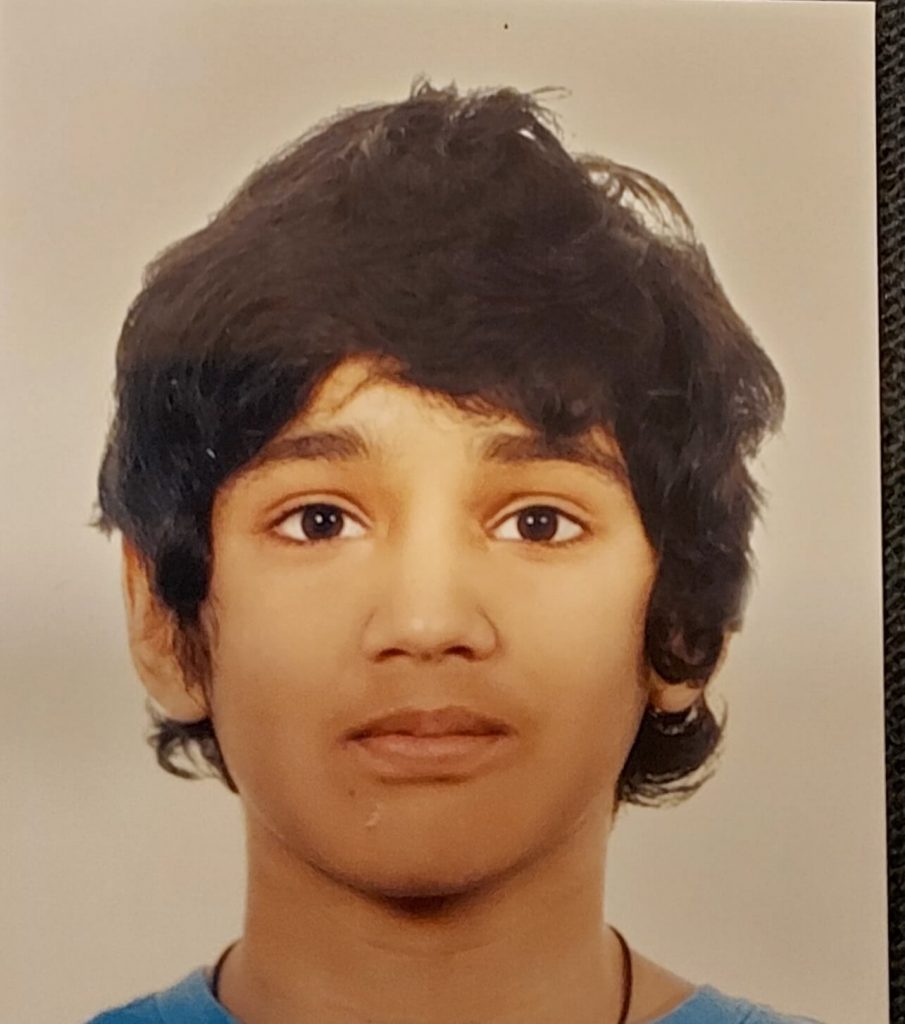Our Schools
Table of Contents
Mr. Mahitosh Patankar, parent of Mihir Patankar, Grade 3, Ekya School, ITPL shares this insightful, informative blog that addresses the issue of how children do not really understand the value of money today. He points out the fact that in today’s scenario, digital money or plastic money gives our children the perception that money is an unlimited resource, thus making them forget the value of it.
Teaching children to manage money
“Frugality includes all the other virtues.” –Cicero
Managing money has always been an important skill. The more financial savvy your children are, the better spending decisions they will make throughout their lives. We have all been through an age where money was touched, felt and valued. It was mostly paper money. But now with Debit/Credit Cards, Mobile Wallets, and Internet Banking, children don’t see currency and coins. Online shopping is a secret genie with one-click checkout, to make an item appear at your house “There are some things money can’t buy. For everything else, there’s MasterCard”. You would all have been in a situation where the excuse for not having money is countered with “Take it from the ATM”. Bingo! Isn’t it?
This invisible money gives the impression of an unlimited resource. Preaching doesn’t work today and it is best to get our kids involved in money management as appropriate with respect to age. Children from the age of 3-4 years can start to understand the concept of saving and spending. The importance of money can be taught early through real-life situations. Eg. When in an ATM, we can talk about how money is earned through hard work and when in the supermarket one can ask “What is expensive? What is really needed? How do we compare?” to evoke concepts of thoughtful spending. These help sow seeds of money management in our child’s mind.
Children are curious and want to show that they have grown. Make them involved and responsible for budgeting and financial planning. For instance, they plan what things are required and make an appropriate list for a supermarket visit or decide the number of dinners/family outings within their given budget. It makes them feel valued and encourages thought process around money management. If the child is too young, he/she may not understand the concept of investing and interest rates but we can give them piggy banks/container for Saving, Spending & Sharing – where they put their allowances equally in these containers. It is a very easy way to learn the importance of saving.
They can ‘spend’ for their candy or a book or a ball and ‘save’ for a more priced possession until they can afford it. It will usually be a more expensive item than candy or chocolate. It helps them learn delayed gratification, the importance of being patient and about savings & accrual. They intuitively start counting whenever money gets added in savings and gets removed from spending to see what is left, putting a value against money.
The ‘Sharing’ jar will help understand philanthropy, donating to the needy or a cause and make them a compassionate human being. Trips to the supermarket or shopping can be used to help make your child a wise consumer or smart buyer. You can show that you can shop around and see a cheaper and expensive product and save by making the right decision comparing price, quality, and quantity. It would be a good idea to take elder kids to the bank and open an account. This will introduce the concept of interest/credit and how money grows & income can be generated. Teenagers can learn how credit is used by businesses/entrepreneurs and how to make wise investments. Essentially, creating learning opportunities at every age/step is the key to develop this important skill from a young age to adulthood.
As the saying goes – Before you spend, earn. Before you invest, investigate. Before you retire, save.
A brief profile of Mr. Mahitosh Patankar:
Mr. Mahitosh Patankar is a senior IT professional working with British Telecom, managing Product Development. He has completed his Engineering from IIT Madras and Management from IIM Bangalore. He is active in voluntary work and loves singing, traveling and camping.
More Stories from Ekya:
Gender Sensitization Week @ Ekya School ITPL





 There are some parts of the body that we need to be a “little more careful” with ie: mouth, chest and private parts. So how do we protect this body? By following the 3 rules - clothing rule, touching rule and talking rule. If a thief broke into our homes and stole our belongings - it’s not our fault as the thief broke the rule, if a person breaks the rules then THEY are at fault. The session concluded with reiterating that most adults are safe and if someone broke the 3 rules then one must shout “No” and go away from them. And, tell their safe adult about it.
There are some parts of the body that we need to be a “little more careful” with ie: mouth, chest and private parts. So how do we protect this body? By following the 3 rules - clothing rule, touching rule and talking rule. If a thief broke into our homes and stole our belongings - it’s not our fault as the thief broke the rule, if a person breaks the rules then THEY are at fault. The session concluded with reiterating that most adults are safe and if someone broke the 3 rules then one must shout “No” and go away from them. And, tell their safe adult about it.




 Examples and role plays were used to keep the session interactive. It was amazing how children were aware of personal space - helping them talk about what is safe and unsafe helps them realize body autonomy. Questions like “is it okay if I don’t want to hug my relatives,” “is it okay to hug my cousins,” helped the students establish that they were the boss of their body. The session concluded by asking the students to draw the outline of their hands and mention names of 5 safe adults that they would talk to. The students performed a skit which emphasized the meaning and importance of consent and what happens when consent is not given.
All our children from Primary to Secondary, engaged in a discussion about the importance of consent by identifying the problem in the situation and suggested solutions themselves. They felt empowered and appreciated as they figured the solutions themselves. Children were taken through safety rules and guides and an interactive session made it a fruitful Gender Sensitization week. Students were also informed of 1098 - a contact number for the children's helpline.
Examples and role plays were used to keep the session interactive. It was amazing how children were aware of personal space - helping them talk about what is safe and unsafe helps them realize body autonomy. Questions like “is it okay if I don’t want to hug my relatives,” “is it okay to hug my cousins,” helped the students establish that they were the boss of their body. The session concluded by asking the students to draw the outline of their hands and mention names of 5 safe adults that they would talk to. The students performed a skit which emphasized the meaning and importance of consent and what happens when consent is not given.
All our children from Primary to Secondary, engaged in a discussion about the importance of consent by identifying the problem in the situation and suggested solutions themselves. They felt empowered and appreciated as they figured the solutions themselves. Children were taken through safety rules and guides and an interactive session made it a fruitful Gender Sensitization week. Students were also informed of 1098 - a contact number for the children's helpline.
More stories from Ekya:
Author, Ms. Rohini Nilekani visits Ekya School JP Nagar



 Ms. Rohini read two books "Too many bananas" and "Sringeri Srinivas Learns to Laugh", both of which are from the "Sringeri Srinivas" series. She was extremely expressive while narrating the story with actions to elucidate the hilarious sections, accompanying her reading. She is truly a natural storyteller. It was clear that she loves children. Her interactions with the children as well as her successful attempts to make the children laugh put smiles on the teacher's faces too. The children had nothing short of an amazing session with a wonderful person. Her other book "Annual Haircut Day" will be used in the reading activity for the next week.
Ms. Rohini read two books "Too many bananas" and "Sringeri Srinivas Learns to Laugh", both of which are from the "Sringeri Srinivas" series. She was extremely expressive while narrating the story with actions to elucidate the hilarious sections, accompanying her reading. She is truly a natural storyteller. It was clear that she loves children. Her interactions with the children as well as her successful attempts to make the children laugh put smiles on the teacher's faces too. The children had nothing short of an amazing session with a wonderful person. Her other book "Annual Haircut Day" will be used in the reading activity for the next week.

 On being asked how her session with the children was, she said "I had a great time. An author needs to connect with her readers. What makes me happiest is a book in a child's hands", describing her work as rewarding. She truly enjoyed her time with the excited preschoolers.
The interactive session was a beautiful light-hearted reading of the adventures of Sringeri Srinivas. The session allowed the teachers to revisit the joys of their childhood while the children were able to take a break. They were able to laugh aloud with an encouraging adult. Thank you, Ms. Rohini Nilekani, for such an interactive session to inspire the younger generation to read.
The session ended with a few of our students getting their copy of a book written by Ms. Rohini Nilekani, signed by the author herself.
On being asked how her session with the children was, she said "I had a great time. An author needs to connect with her readers. What makes me happiest is a book in a child's hands", describing her work as rewarding. She truly enjoyed her time with the excited preschoolers.
The interactive session was a beautiful light-hearted reading of the adventures of Sringeri Srinivas. The session allowed the teachers to revisit the joys of their childhood while the children were able to take a break. They were able to laugh aloud with an encouraging adult. Thank you, Ms. Rohini Nilekani, for such an interactive session to inspire the younger generation to read.
The session ended with a few of our students getting their copy of a book written by Ms. Rohini Nilekani, signed by the author herself.








 By Nidhi Bhavsar
Grade 10A, Ekya School JP Nagar
By Nidhi Bhavsar
Grade 10A, Ekya School JP Nagar











Leave a reply